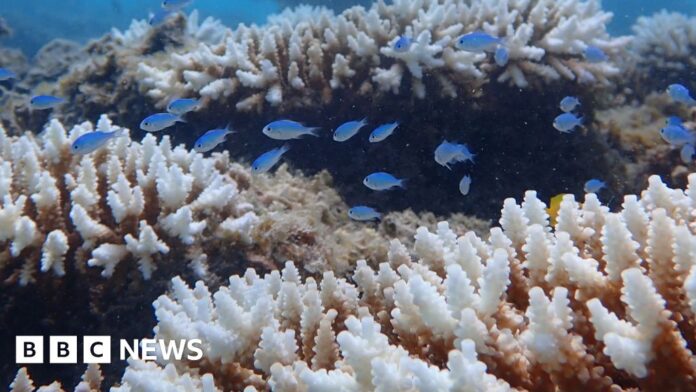World-famous coral reefs along Western Australia’s (WA) coast have suffered the worst bleaching on record after the state’s “longest, largest and most intense” marine heatwave, scientists say.
Between last August and this May, warmer water temperatures led to significant heat stress on the reefs, causing many of the coral to expel the algae which gives them life and colour – a process called bleaching, which is often fatal.
The damage – which will take months to assess – spans 1,500km (932 miles) and includes areas previously unscathed by climate change.
Coral reefs worldwide have been suffering from a two-year-long global coral bleaching event, due to record high ocean temperatures.
Eight weeks of heat stress is usually enough to kill coral, and early estimates showed many WA reefs suffered between 15 and 30, said Australia’s marine science agency.
“The length and intensity of the heat stress, and its footprint across multiple regions, is something we’ve never seen before on most of the reefs in Western Australia,” James Gilmour, from the Australian Institute of Marine Science (Aims), said.
In a new report, the Aims researchers found the 2024-25 season was the “most severe coral bleaching on record” for WA coral reefs across both the northwestern and central reefs.
“Areas which had given us hope because they’d rarely or not bleached before – like the Rowley Shoals, north Kimberley and Ningaloo – have been hit hard this time. Finally, climate heating has caught up with these reefs,” he said.
Climate change means bleaching events are becoming more frequent, more intense and more widespread, which Dr Gilmore says gives coral reefs – which need 10 to 15 years to recover – little time to bounce back.
“Climate change caused by carbon emissions remains the greatest threat to our coral reefs, and all reefs globally,” he said.



